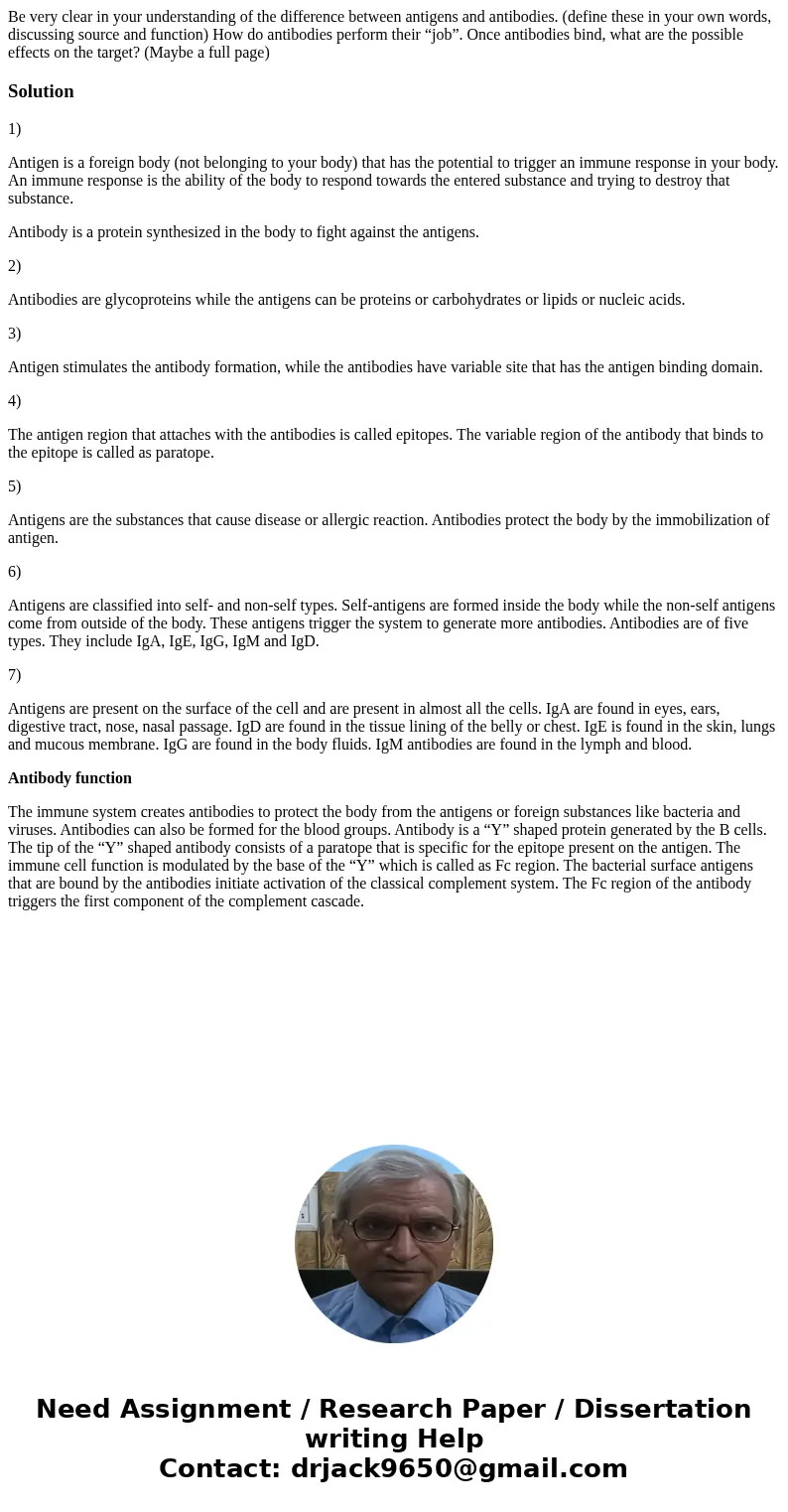Be very clear in your understanding of the difference betwee
Be very clear in your understanding of the difference between antigens and antibodies. (define these in your own words, discussing source and function) How do antibodies perform their “job”. Once antibodies bind, what are the possible effects on the target? (Maybe a full page)
Solution
1)
Antigen is a foreign body (not belonging to your body) that has the potential to trigger an immune response in your body. An immune response is the ability of the body to respond towards the entered substance and trying to destroy that substance.
Antibody is a protein synthesized in the body to fight against the antigens.
2)
Antibodies are glycoproteins while the antigens can be proteins or carbohydrates or lipids or nucleic acids.
3)
Antigen stimulates the antibody formation, while the antibodies have variable site that has the antigen binding domain.
4)
The antigen region that attaches with the antibodies is called epitopes. The variable region of the antibody that binds to the epitope is called as paratope.
5)
Antigens are the substances that cause disease or allergic reaction. Antibodies protect the body by the immobilization of antigen.
6)
Antigens are classified into self- and non-self types. Self-antigens are formed inside the body while the non-self antigens come from outside of the body. These antigens trigger the system to generate more antibodies. Antibodies are of five types. They include IgA, IgE, IgG, IgM and IgD.
7)
Antigens are present on the surface of the cell and are present in almost all the cells. IgA are found in eyes, ears, digestive tract, nose, nasal passage. IgD are found in the tissue lining of the belly or chest. IgE is found in the skin, lungs and mucous membrane. IgG are found in the body fluids. IgM antibodies are found in the lymph and blood.
Antibody function
The immune system creates antibodies to protect the body from the antigens or foreign substances like bacteria and viruses. Antibodies can also be formed for the blood groups. Antibody is a “Y” shaped protein generated by the B cells. The tip of the “Y” shaped antibody consists of a paratope that is specific for the epitope present on the antigen. The immune cell function is modulated by the base of the “Y” which is called as Fc region. The bacterial surface antigens that are bound by the antibodies initiate activation of the classical complement system. The Fc region of the antibody triggers the first component of the complement cascade.

 Homework Sourse
Homework Sourse